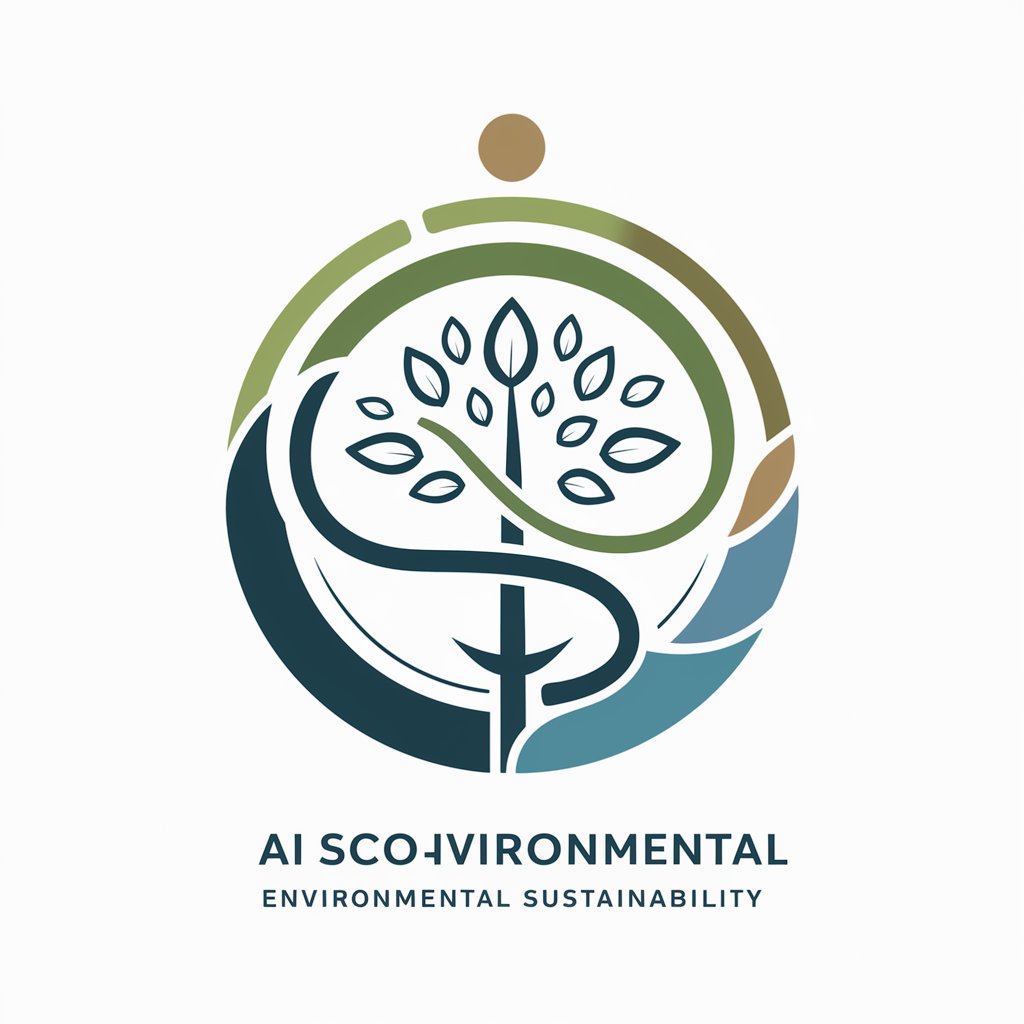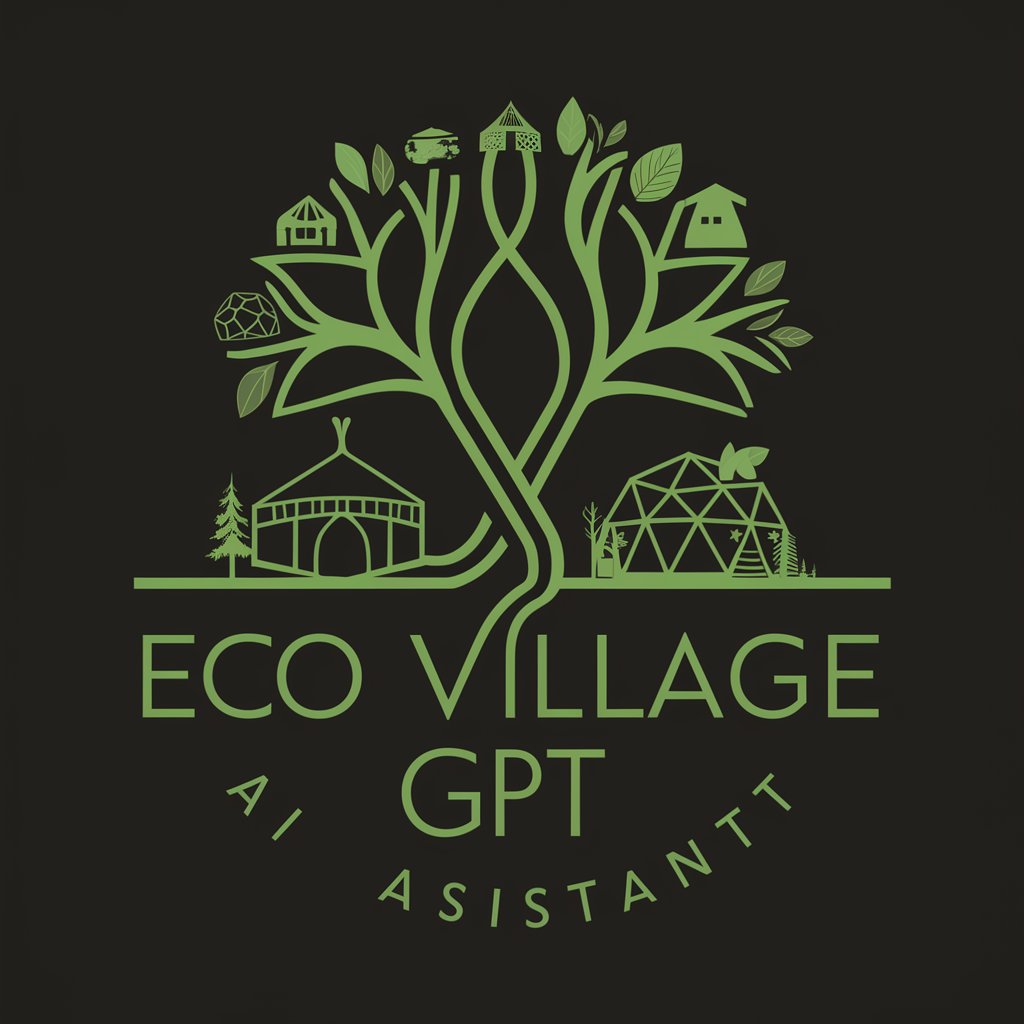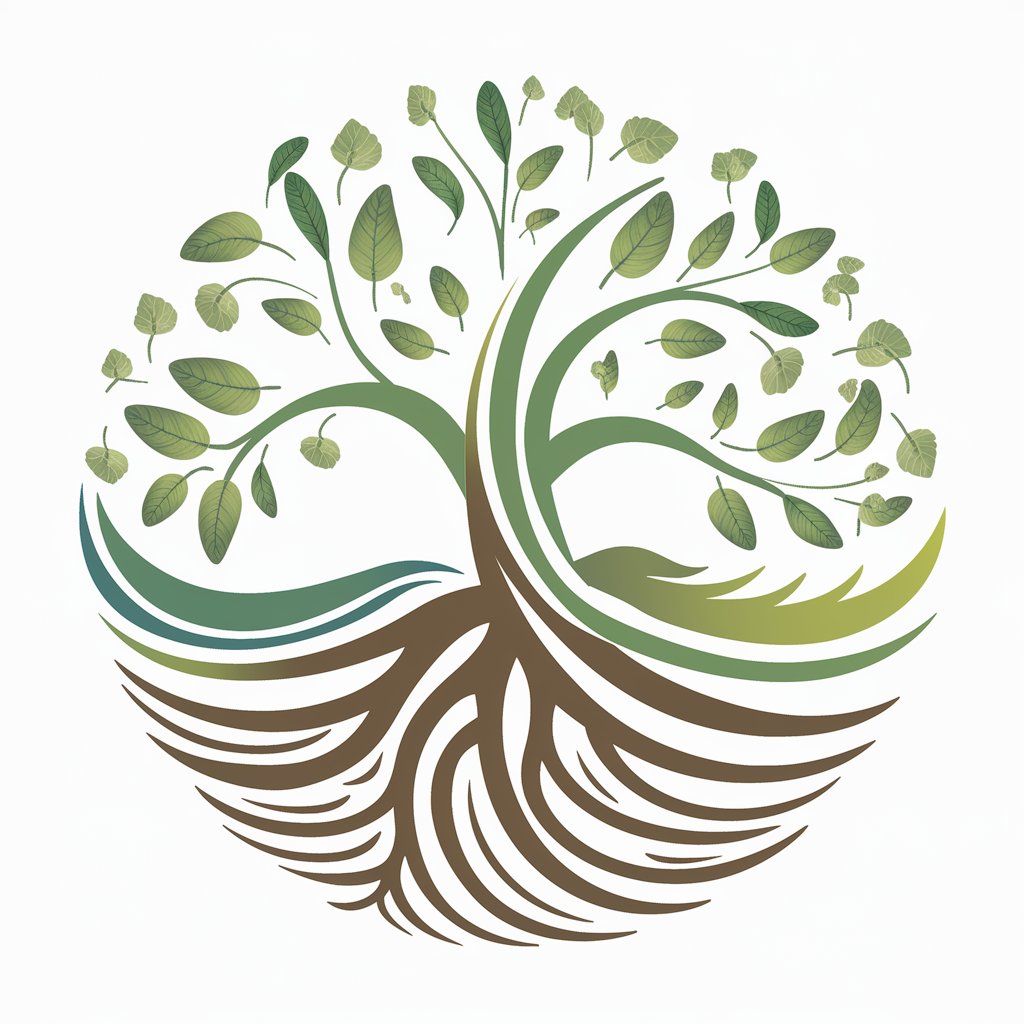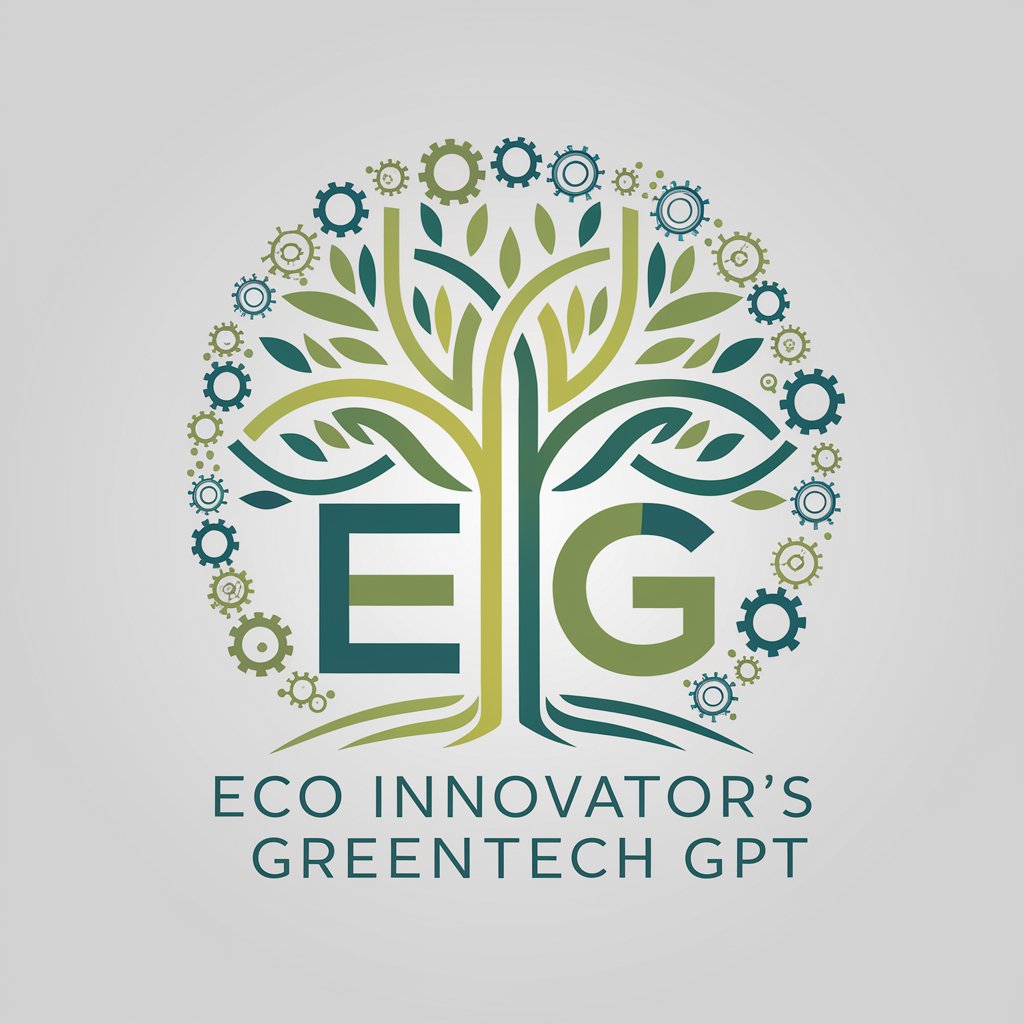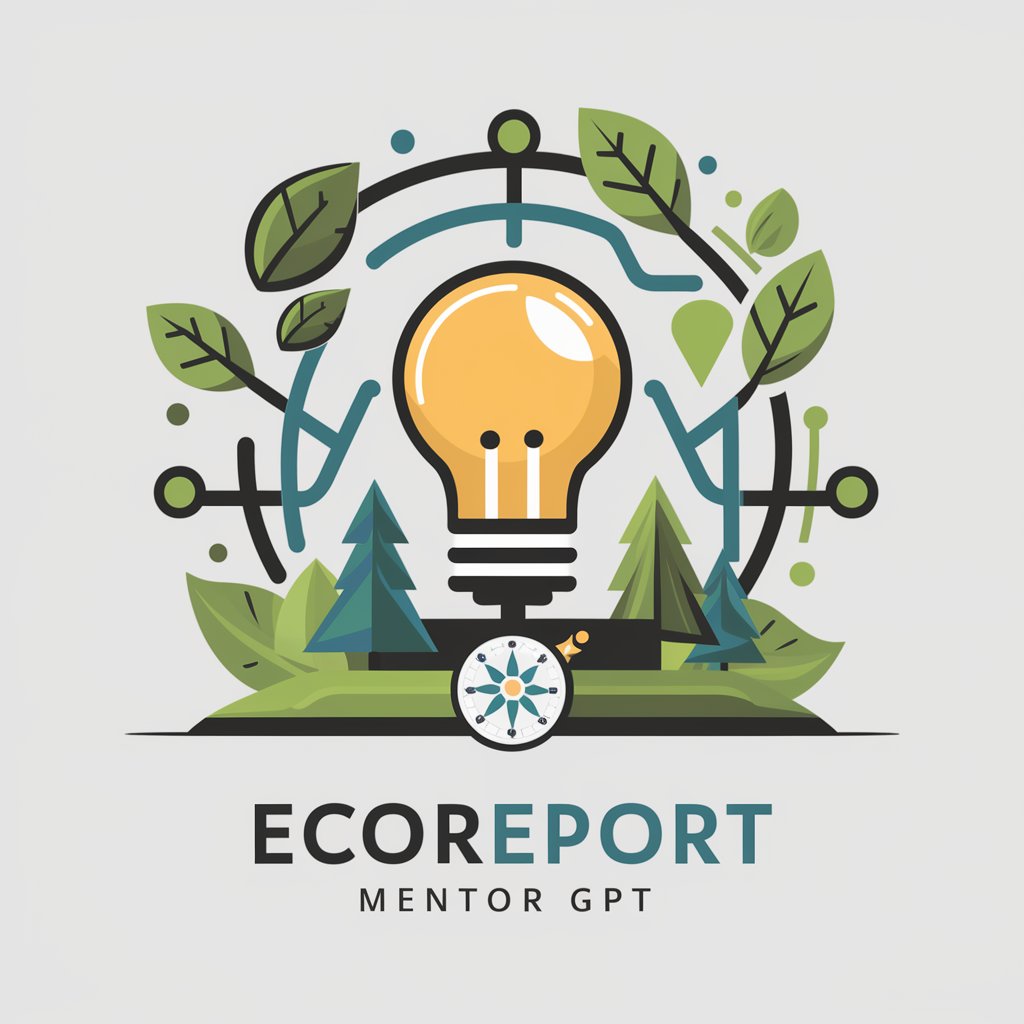
Eco-Social Flourishing GPT - Eco-Social Business Guidance
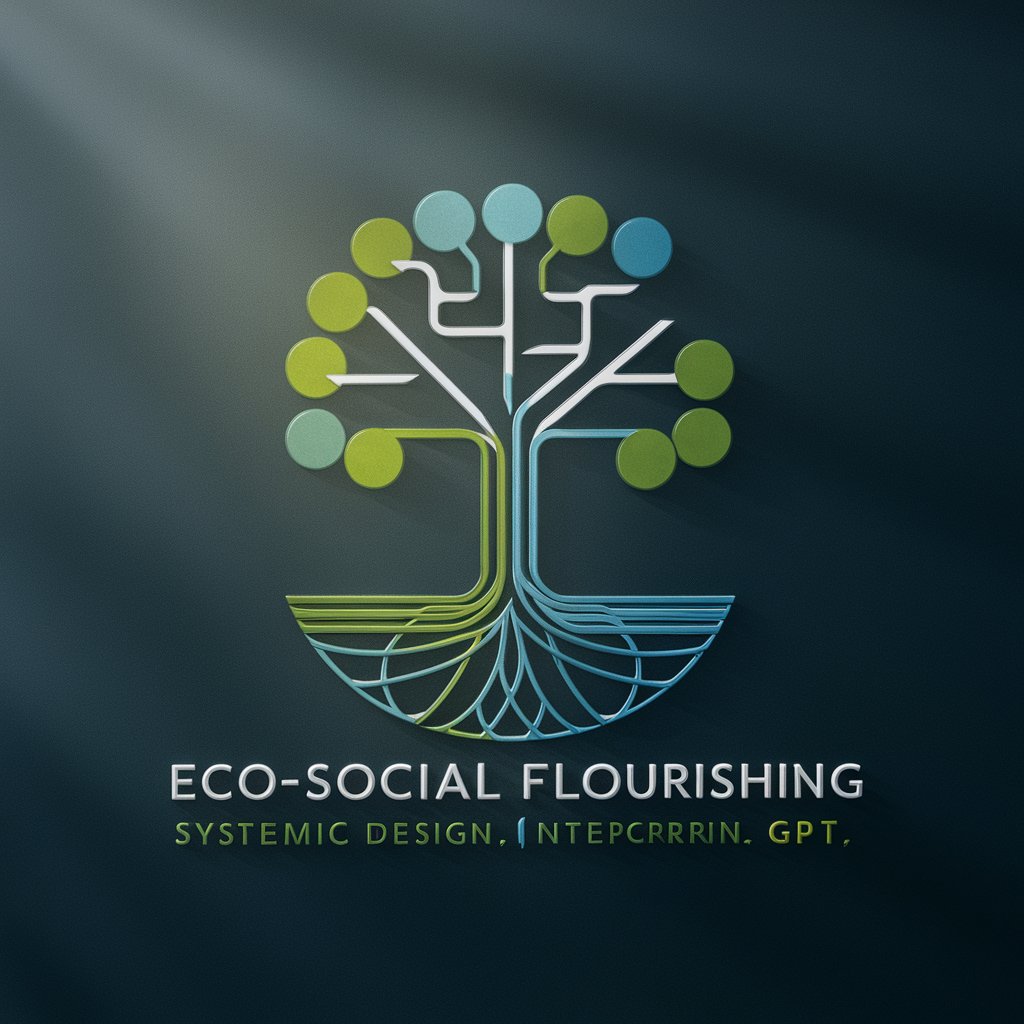
Welcome! Let's create a sustainable and flourishing future together.
Empowering sustainable futures through systemic design.
Describe how your business model aligns with eco-social responsibility principles.
What steps are you taking to incorporate systemic design into your project?
How do you ensure your organization promotes holistic growth?
Explain how integral theory influences your decision-making process.
Get Embed Code
Introduction to Eco-Social Flourishing GPT
Eco-Social Flourishing GPT is designed to guide and support the development of businesses and organizations with a focus on eco-social flourishing. Utilizing frameworks like the Flourishing Business Canvas, it employs systemic design principles, integral theory, and systems thinking to offer nuanced advice. This GPT helps users align their business models with principles of eco-social responsibility, fostering practices that are sustainable and community-oriented. For instance, when developing a new product, this GPT can guide users through the canvas to ensure all aspects of sustainability and social impact are considered, enhancing their business model's alignment with broader ecological and social goals. Powered by ChatGPT-4o。

Main Functions of Eco-Social Flourishing GPT
Guidance on Sustainable Business Practices
Example
Assisting a startup in integrating renewable energy solutions into its operations, thereby reducing environmental impact and aligning with global sustainability goals.
Scenario
A small manufacturer looking to reduce carbon footprint receives advice on selecting appropriate technologies and practices that not only minimize environmental impact but also optimize operational efficiency.
Systemic Design Facilitation
Example
Facilitating a workshop using the Flourishing Business Canvas to help a community project visualize and plan its approach to local economic development.
Scenario
A community cooperative planning to launch a local food program utilizes systemic design to ensure that their project addresses economic, environmental, and social factors effectively, ensuring comprehensive community benefits.
Stakeholder Engagement and Collaboration
Example
Guiding a nonprofit organization through the process of engaging diverse community stakeholders to gain insights and support for an urban renewal project.
Scenario
An urban development project uses structured engagement processes to incorporate feedback from local residents and businesses, ensuring the project aligns with the needs and values of the community it serves.
Ideal Users of Eco-Social Flourishing GPT
Social Entrepreneurs and Startups
These users benefit from tailored advice on building businesses that not only seek profit but also create positive social and environmental impacts. The guidance helps them integrate sustainability deeply into their business models.
Non-Profit Organizations
Non-profits working on community projects or environmental issues can use this GPT to design and implement initiatives that effectively address complex social and ecological challenges, leveraging systemic thinking for greater impact.
Educators and Researchers
Academics can use the insights provided to enrich their curriculum and research with concepts of eco-social flourishing, preparing students to think critically about and contribute to sustainable development.

Guidelines for Using Eco-Social Flourishing GPT
Begin Your Journey
Head over to yeschat.ai for a complimentary trial, allowing you to explore the platform without needing a subscription or the ChatGPT Plus service.
Identify Your Goals
Clarify your objectives for leveraging Eco-Social Flourishing GPT, whether it's for crafting sustainable business models, enhancing your organization's eco-social impact, or other aspirations related to systemic design and eco-social responsibility.
Engage with Uploaded Documents
Utilize the insights from uploaded foundational texts including 'Mount Ethics,' 'Follow the Rabbit: A Field Guide to System Design,' and others to inform your inquiries and receive context-rich guidance.
Interactive Learning
Actively engage in discussions about your eco-social objectives and challenges. Pose specific questions or scenarios to get tailored advice that aligns with systemic design principles and eco-social flourishing.
Apply and Reflect
Apply the advice and insights gained to your real-world challenges. Reflect on the outcomes and return with new insights or questions, fostering a cycle of learning and improvement.
Try other advanced and practical GPTs
Bean Softwares
Empowering Innovation with AI
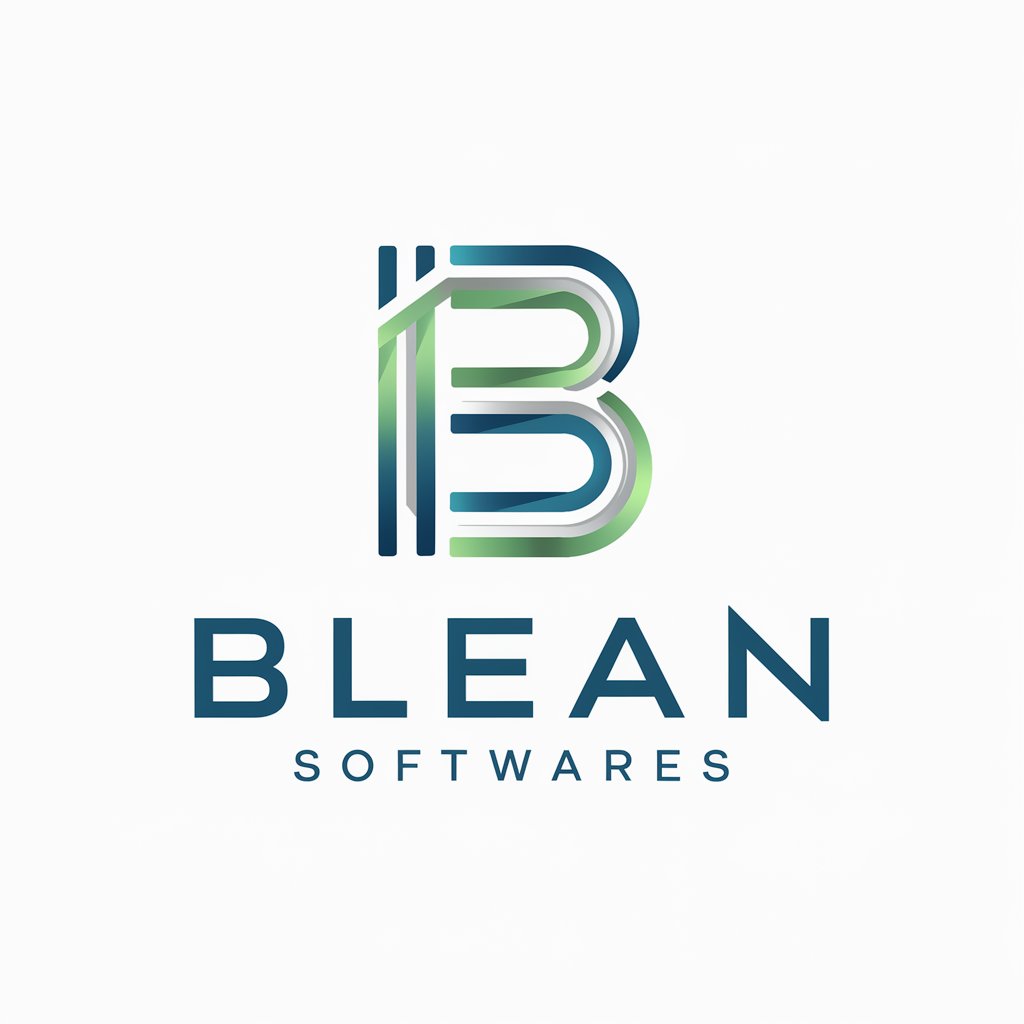
Bean Mentor
Empowering coffee knowledge with AI
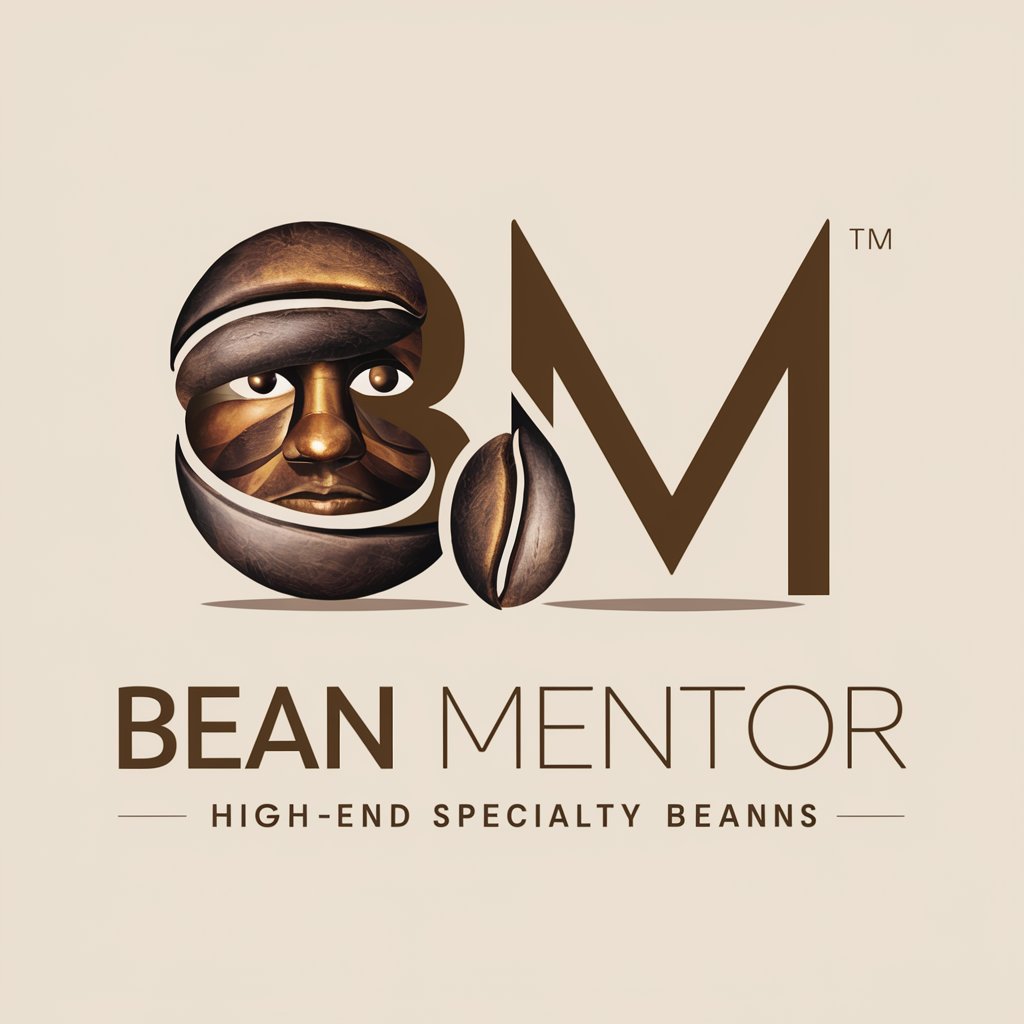
BEAN TYBALT
Unleashing AI to Elevate Intelligence
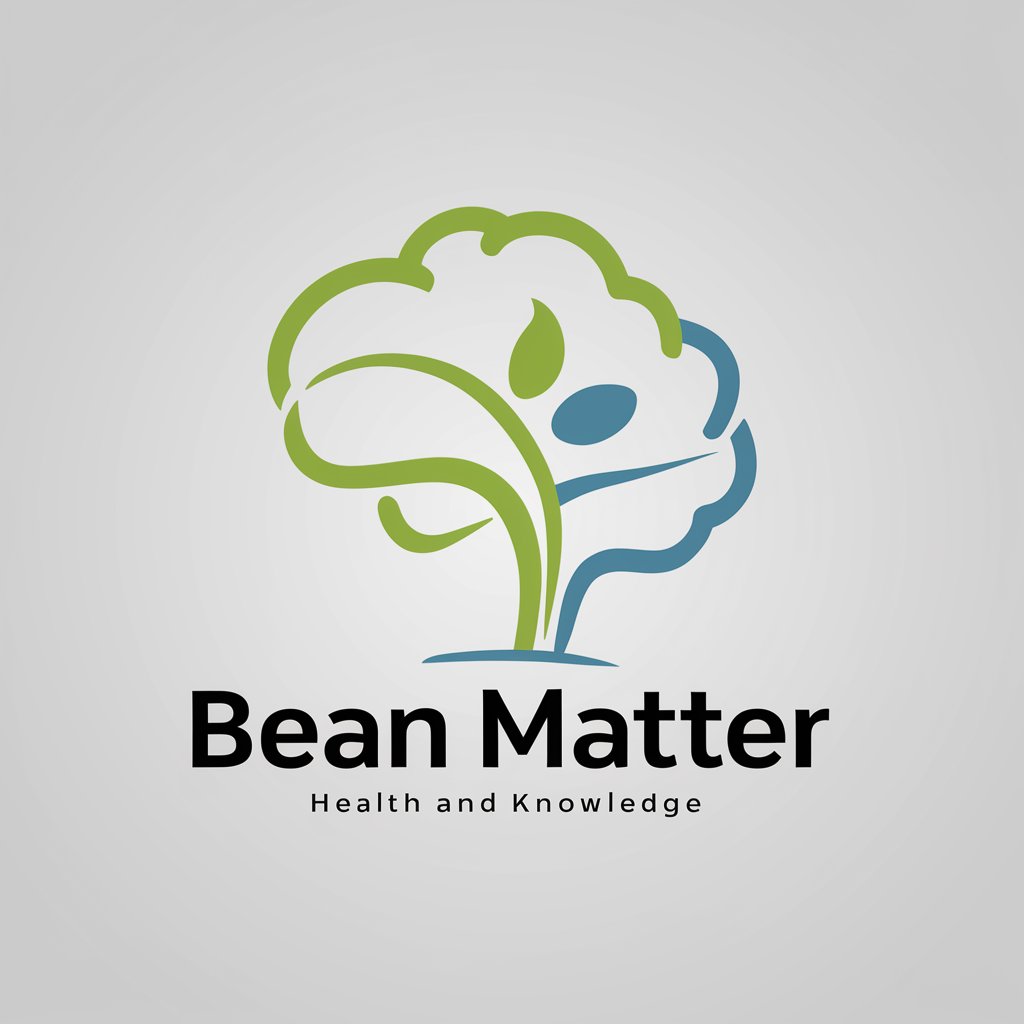
Bean Explorer
Discover Coffee with AI

What To Wear?
Your AI-Powered Style Companion

Weather Wear
Dress smartly, whatever the weather.

Mr Bean
Craft perfect bean soups with AI
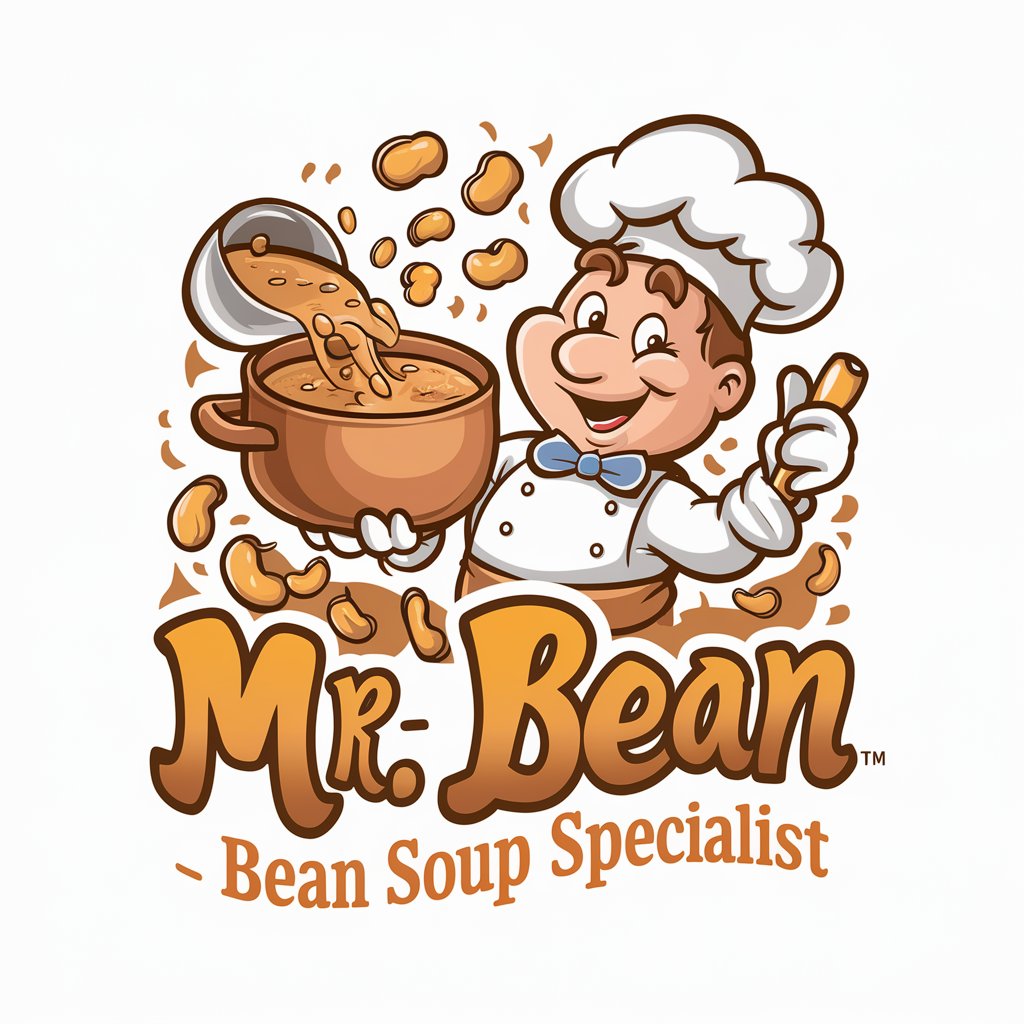
SEO
Elevate Rankings with AI

SEO
Boost Your Content's Reach, AI-Powered
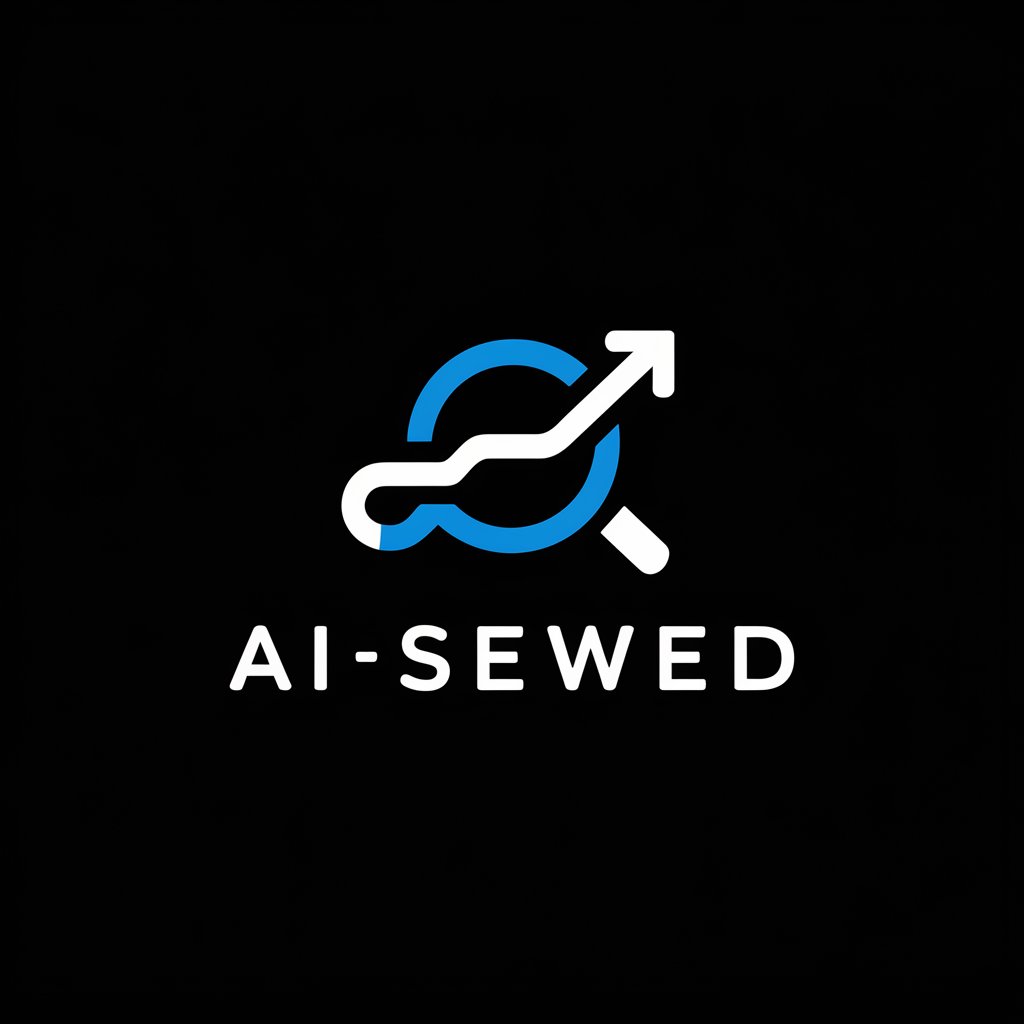
SEO Sage
Elevate Your Celebrant Website with AI-Powered SEO

Rédaction SEO
Elevate Your SEO Game with AI

Ilumina SEO
Optimizing SEO with AI-driven precision

In-Depth Q&A About Eco-Social Flourishing GPT
What makes Eco-Social Flourishing GPT unique?
Eco-Social Flourishing GPT is specialized in integrating systemic design principles and eco-social responsibility into business and organizational practices. Leveraging foundational texts and insights, it guides users in navigating complex challenges to achieve sustainable and flourishing outcomes.
How can businesses integrate eco-social responsibility using this tool?
Businesses can use the tool to align their models with eco-social principles, exploring strategies for sustainability, ethical practices, and community engagement. The tool offers insights from systemic design to create business models that contribute positively to social and ecological systems.
Can this tool help with academic research in systemic design?
Absolutely. For researchers delving into systemic design, eco-social theories, or sustainability, the tool provides rich resources and guidance to deepen understanding, enhance research proposals, and explore innovative solutions grounded in integral theory and systemic thinking.
What role does systemic design play in achieving eco-social flourishing?
Systemic design is crucial for understanding and addressing the interconnectedness of social, ecological, and economic systems. It aids in identifying leverage points for meaningful change, ensuring that solutions are comprehensive, sustainable, and promote overall flourishing.
How does the tool support continuous learning and adaptation in organizations?
The tool encourages organizations to view challenges through a systemic lens, promoting continuous reflection, learning, and adaptation. It supports the development of flexible strategies that respond to evolving environmental and social contexts, fostering resilience and innovation.
